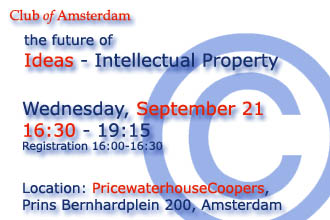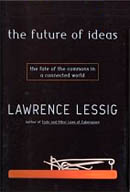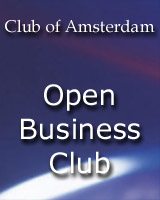
Offshoring Patent Drafting and Prosecution Services

Alok Aggarwal, co-founder, Evalueserve

Hedda Pahlson-Moller, Client Executive, Evalueserve
Offshoring Patent Drafting and Prosecution Services
1.1 Background
Around 175,000 patent applications are filed with the European Patent Office (EPO) every year. Of these patent application filings, a significant number – almost 44 percent per year – are made by non-European states. This clearly indicates that a great deal of patenting activity is taking place in various organisations across the world, with the accelerated rate of R&D taking place in emerging countries such as India and China. Evalueserve estimates that as many as 223,000 patent applications will be filed in Europe in the year 2010.
Within Europe, approximately 8,000 attorneys and agents are registered with the EPO, to prepare, file and prosecute patent applications. They are also engaged in other intellectual property work, e.g., preparing, filing and prosecuting trademark applications and copyrights, IP litigation and IP asset management. In order to meet the rising demand for intellectual property (IP) work, Evalueserve predicts that more than 2,000 additional attorneys and agents will be required in Europe by 2010, to avoid a sharp rise in costs incurred by applicants.
Currently, many large organisations have in-house IP divisions with agents, associates, lawyers and business development professionals who handle all kinds of IP work. However, most small and medium-sized enterprises do not have separate IP divisions; and due to reasons such as cost, quality and efficiency, many large firms often outsource some – or all – of their IP work to external firms.
Since both the price and demand for IP services is likely to escalate during the next few years, and as corresponding budgets (for IP creation and maintenance) are likely to grow only at the rate of inflation, more and more companies and law firms are becoming worried about jeopardising the quality of their intellectual property. Furthermore, as significant Research and Development (R&D) will be carried out in emerging countries such as India and China, many companies are beginning to explore the potential of offshoring their IP services to third parties, particularly those located in lowwage countries such as India. There are around 600 patent agents registered with the Indian Patent Office in India as well as approximately 300 IP professionals who are not. Evalueserve estimates that about one-third of these 900 professionals currently provide the following kinds of patentrelated services to European and American end clients, and predicts that this number is likely to double to 1,800-2,000 by 2010.

News about Intellectual Property

SIPO Formally Starts the National Intellectual Property Strategy-Making Work
“Mr. Tian Lipu, commissioner of the SIPO [State Intellectual Property Office of the People’s Republic of China] commented that in order to meet both the national and international challenges, meet the requirements of realizing the new-style industrialization, China must formulate its own national intellectual property strategy.
The IP strategy is correlated with the Strategy of Developing the Country by Relying on Science and Education, the Sustainable Development Strategy, the Strategy of Reinvigorating China through Human Resource Development, etc. All of the above-mentioned national strategies have a common goal: building a well-off society, making contributions for China’s renaissance.

All of the work must be finished in one year, at the latest of not more than one and a half years.”
Music copyright: Study on a community initiative on the cross-border collective management of copyright
by the European Commission
The study examines the present structures for cross-border collective management of copyright for the provision of online music services. It concludes that the absence of EU-wide copyright licences for online content services makes it difficult for these music services to take off. Online music services targeted by the analysis include services provided on the Internet – such as simulcasting, webcasting, streaming, downloading or an online “on-demand” service – and also music services provided to mobile telephones. The study focuses on these services because all of them can be enjoyed across Europe and, in consequence, their copyright needs to be cleared throughout Europe.
It concludes that entirely new structures for cross-border collective management of copyright are required, and that the most effective model for achieving this is to enable right-holders to authorise a collecting society of their choice to manage their works across the entire EU. This would create a competitive environment for cross-border management of copyright and considerably enhance right-holders’ earning potential.
In addition, the right-holder’s freedom to choose any collecting society in the EU would create a powerful incentive for these societies to provide optimal services to all their right-holders, irrespective of their location – thereby enhancing cross-border royalty payments.
News about the future

Ten Key Trends for Women in 2005 and Beyond
By Thomas Frey, Executive Director of the DaVinci Institute
“As people move through life, they search for signposts along the way. They search for those rare pieces of intelligence that give them a gut-level feeling of confidence about what to do next. Today’s women are particularly adept at reading these signposts, which range from magazine articles, to movies, to conversations with a people they trust. They trust their instincts and aren’t afraid to make critical decisions.
Women today are bold and confident, unapologetic for who they are and the things they like, and vast in their ability to influence nearly every aspect of modern life.
In spite of the heavy load that most women shoulder, and the torrid pace of living, the bad years are now past, and a resurgence of hope seems to be building. With guarded smiles reacting to each new piece of positive news, they listen intently for the rhythm of hope that beats continuously in their lives.
Women create our culture. They give birth to each new generation and heavily influence nearly every major decision being made today. Its critically important that we pay close attention to the drivers that are influencing the emerging new thinking class of bright articulate women wanting to make a difference in today’s world.” read further

Power Play: The Search For Energy-Efficient Chips
Discussions of computer performance are typically dominated by references to measures such as MIPS, MHz and MFLOPS.
But Wu-Chun Feng, a computer architect at Los Alamos National Laboratory in New Mexico, expects that to change during this decade. He says it’s time for the computer community to adopt alternate metrics for evaluating performance. “It’s about more than speed; it’s about reliability, availability and efficiency,” he says.
It’s more than an esoteric semantic point. ASC Q, a giant supercomputer at Los Alamos, has 8,192 processors, and although each one is extremely reliable (as well as fast), there are so many of them that the machine overall fails about 114 times a month, or once per eight-hour shift. […]
So the lab has developed and is now enhancing “dynamic scaling” software that learns the characteristics of the application as it runs. It’s able to anticipate when the workload will shift significantly from CPU-intensive operations to various off-chip functions that don’t require high CPU clock speed and voltage and then temporarily scale them back.
This technique has yielded a reduction in power consumption of as much as 70%, but performance has degraded only 1% to 5% for uniprocessor applications, Feng says.
Power savings from this technique average about 25%, he says. “If you save 25% on power, that’s 25% more processors I can add to my system and still be in the same thermal envelope.”
Next Event: Wednesday, September 21, 16:30-19:15

the future of Ideas – Intellectual Property
Wednesday, September 21, 2005
Registration: 16:00-16:30, Conference: 16:30-19:15
Where: PricewaterhouseCoopers, Prins Bernhardplein 200, Amsterdam [next to Amstelstation], free parking.
With
Kamiel J. Koelman, Associate Professor, Computer/Law Institute (CLI), Vrije Universiteit: Open source software and software patents
Hans Bousie, Owner, Bousie advocaten: Intellectual property and intelligent ownership
Hedda Pahlson-Moller, Managing Director, Omnisource International, Client Executive, Evalueserve: Trends in IP Offshoring
and our Moderator Marc Bolick, CEO, Dmarc8 International
15 Global Challenges
15 Global Challenges
by ACUNU Millennium Project
The 15 Global Challenges, with a range of views and actions to addressed each, are updated each year and enriched with regional views and indicators to measure progress on these challenges and published in the annual State of the Future. The list below links to a short overview of each challenge and the invitation to help update them.
- How can sustainable development be achieved for all?
- How can everyone have sufficient clean water without conflict?
- How can population growth and resources be brought into balance?
- How can genuine democracy emerge from authoritarian regimes?
- How can policymaking be made more sensitive to global long-term perspectives?
- How can the global convergence of information and communications technologies work for everyone?
- How can ethical market economies be encouraged to help reduce the gap between rich and poor?
- How can the threat of new and reemerging diseases and immune micro-organisms be reduced?
- How can the capacity to decide be improved as the nature of work and institutions change?
- How can shared values and new security strategies reduce ethnic conflicts, terrorism, and the use of weapons of mass destruction?
- How can the changing status of women help improve the human condition?
- How can transnational organized crime networks be stopped from becoming more powerful and sophisticated global enterprises?
- How can growing energy demands be met safely and efficiently?
- How can scientific and technological breakthroughs be accelerated to improve the human condition?
- How can ethical considerations become more routinely incorporated into global decisions?
Games People Play
Games People Play
Life invades games, and vice versaby Jesse Walker, reason.com
Fans across England are mourning the death of Jamie Kane, the scandal-tinged veteran of the boy band Boy*d Upp whose solo career was, to quote Wikipedia, “mildly successful.” He was killed in a helicopter crash en route to a video shoot; the BBC’s Top of the Pops website reported that his aircraft “experienced some technical difficulties on the flight, and crashed into the sea some miles from its destination.” Some suspect foul play.
Nearly everything in the previous paragraph is untrue. There never was a boy band called Boy*d Upp, there never was a pop star named Jamie Kane, he never had fans, he never faced a scandal, and he never died. The BBC did report his death, though, and an outline of his alleged career did surface briefly in Wikipedia, the popular online reference that relies on its readers for its content. Above all, the whiff of foul play is undeniably in the air.
Jamie Kane is a character in an alternate reality game, or ARG, the most immersive form of fiction since religion. (Not your religion, dear reader. That one’s the unvarnished truth. I’m referring to all the others.) The most famous ARG is The Beast, an elaborate puzzle that was created to promote the Steven Spielberg movie A.I., was widely regarded as far superior to the film it advertised, and set the template for the genre by inverting the classic concept of virtual reality. In “‘This Is Not a Game’: Immersive Aesthetics and Collective Play,” a paper for the 2003 Digital Arts & Culture Conference, the Berkeley-based game designer Jane McGonigal contrasts “immersive artworks that try to create realistic sensory experiences and meaningful interactivity in an artificial setting” with The Beast’s approach, which “sought to use natural settings as the immersive framework. Rather than creating virtual environments that were (hopefully) realistic and engaging, the Beast’s producers co-opted real environments to enable a virtual engagement with reality.” Among other things, that meant thousands of Web pages planted throughout the Internet, clues dropped unannounced into newspaper and TV ads, real-world phone calls and faxes to players, packages in the mail, even carefully placed bathroom graffiti. “The Beast recognized no game boundaries,” McGonigal writes; “the players were always playing, so long as they were connected to one of their main everyday networks.” Its slogan: “This Is Not A Game.”
[…]
When Beast players try to solve the real-life murder of 3,000 people with the same techniques they used to decipher a high-tech narrative, you might start to worry that they’ve confused their pastime with the much more byzantine complex of games that constitute human society. But at their best, ARGs might push us in a different direction: toward a more self-conscious awareness of the games we play in real life.
for the full article click here
Recommended Book

The Future of Ideas : The Fate of the Commons in a Connected World
by Lawrence Lessig
If The Future of Ideas is bleak, we have nobody to blame but ourselves. Author Lawrence Lessig, a Stanford law professor and keen observer of emerging technologies, makes a strong case that large corporations are staging an innovation-stifling power grab while we watch idly. The changes in copyright and other forms of intellectual property protection demanded by the media and software industries have the potential to choke off publicly held material, which Lessig sees as a kind of intellectual commons. He eloquently and persuasively decries this lopsided control of ideas and suggests practical solutions that consider the rights of both creators and consumers, while acknowledging the serious impact of new technologies on old ways of doing business. His proposals would let existing companies make money without using the tremendous advantages of incumbency to eliminate new killer apps before they can threaten the status quo. Readers who want a fair intellectual marketplace would do well to absorb the lessons in The Future of Ideas. – Rob Lightner
The Luck Project
Lucky people meet their perfect partners, achieve their lifelong ambitions, find fulfilling careers, and live happy and meaningful lives. Their success is not due to them working especially hard, being amazingly talented or exceptionally intelligent. Instead, they simply appear to have an uncanny ability to be in the right place at the right time and enjoy more than their fair share of lucky breaks.
The Luck Project scientifically explores why some people live such charmed lives, and aims to develop techniques that enable others to enhance their own good fortune.
The project began in 1994 and has involved hundreds of exceptionally lucky and unlucky people. The main findings from the research have recently been published in Prof. Richard Wiseman’s The Luck Factor.
New Research
How to be lucky in love
Some people are lucky in love and find their perfect partner in life. Others are unlucky and experience an endless string of unhappy relationships. New research discovers why. As part of his ongoing research into the psychology of luck, Prof. Wiseman devised a questionnaire measuring key aspects of people’s psychological make-up, such as their levels of extraversion, optimism, intuition, etc.. 100 lucky and unlucky people completed the questionnaire and then imagined that they were about to go on a blind date. […]
How well connected are you? – The Surnames Experiment
The concept for the ‘surnames experiment’ was based upon an idea briefly mentioned by American journalist Malcolm Gladwell in his book, ‘The Tipping Point’. To explore the notion of social connectivity, Gladwell carried out an informal study in which he presented people with a list of surnames and asked them to indicate if they knew people with that surname. I wondered whether it might be possible to use the idea as the basis for a questionnaire that could both quantify the relationship between luck and social connectivity. Thousands of people were asked to classify themselves as either lucky, neutral (neither lucky nor unlucky) or unlucky. Next, they were presented with a list of 15 common British surnames, and asked to indicate if they were on first name terms with at least one person with each surname.
The results were dramatic and demonstrated the huge relationship between luck and social connectivity. Almost 50% of lucky people ticked 8 or more of the names, compared to 35% of neutral people and just 25% of unlucky people. […]
Luck and the small world phenomenon
Most people have encountered the “small world” phenomenon – that striking coincidence that emerges while chatting to a stranger at a party when you discover that the two of you have a mutual friend or acquaintance.
Many scientists now believe that almost any two strangers, selected at random from anywhere in the world, may well be linked by an amazingly small number of people – half a dozen or so.
We know that the internet, the brain, the web of reactions in a living cell, power grids and the economy are other examples of this connectedness. In short, scientists believe that we live in a genuinely small world.
But what evidence is there to support this view? Not as much as you might think, for an idea that has been around for decades. […]
Club of Amsterdam Upcoming Events
| NEW: .Our Season Events are Wednesdays 16:30! | |
| 16:00-16:30 Registration 16:30-17:45 Part I: Presentations 17:45-18:15 Break: Drinks and evtl. live music 18:15-19:15 Part II: Discussion | |
| .Club of Amsterdam Season Events 2005/2006 | |
| .Sept 21 | the future of Ideas – Intellectual Property |
| .Oct 19 | the future of the USA |
| .Nov 30 | the future of Software Architecture |
| .Jan 25 | the future of Futurist Tools – how to improve your strategy and planning processes |
| .Mar 1 | the future of Electronic Identity |
| .Mar 29 | the future of Governance |
| .Apr 26 | the future of Drugs & Pharma |
| .May 31 | the future of Reputation Management |
| .Jun 28 | the future of Journalism – Ethics in Journalism |

Club of Amsterdam Open Business Club




Customer Reviews
Thanks for submitting your comment!